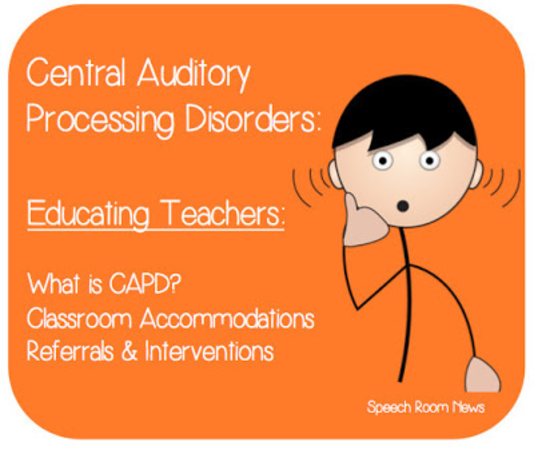

Use of a quiet area to do independent work.Use of picture or written schedules for the day’s activities.Having an agreed-upon signal the teacher can use to get the child’s attention.Being seated near the teacher and away from distractions.Getting extended time on tests, including standardized tests.Kids might be eligible for an IEP under the category of “other health impairment.”Įxamples of accommodations might include:


May also evaluate for learning differences and ADHD, which often co-occur with APD. Diagnose mental health issues that may co-occur, like anxiety and depression. Clinical child psychologists: Provide cognitive behavioral therapy (CBT) to help with emotional issues related to APD.Pediatricians, developmental-behavioral pediatricians, nurse practitioners: May suspect an issue and refer child to a specialist.This can result in feeling excluded or like the “bad kid.” As a result, kids with ADHD may struggle with low self-esteem. They may get a lot of negative feedback for acting out or not paying attention. Kids with ADHD may have trouble following social rules, which can make it hard to make and keep friends. They may not pick up on sarcasm and nonverbal forms of conversation.Īs a result, they may avoid socializing, or want to be alone during gatherings, because keeping up with conversation can be exhausting and stressful. Kids with APD may miss social cues because they have to focus so hard on understanding the actual words being said. Is constantly fidgeting and moving and gets bored easily unless an activity is very enjoyable.Struggles to sit still during quiet activities.Is easily distracted by whatever’s going on - sounds, sights, activity.Interrupts people and blurts out things inappropriately.Finds it hard to stay organized and on task.Frequently doesn’t react or respond when spoken to when pressed, might say “I didn’t hear you!” or “What?”.Struggles to focus during conversation and when responding to spoken questions.May prefer to read stories independently rather than listen to them read aloud.Struggles with activities that involve listening comprehension.Is easily distracted by background noise or loud and sudden noises.May not speak clearly, confuses similar sounds, such as “three” instead of “free”.Has trouble following directions and spoken instructions.Frequently asks people to repeat what they’ve said often responds with “huh?” or “what?”.Struggles to follow conversations and respond to spoken questions.Seems “tuned out” due to not understanding what’s being said.They may also have trouble managing emotions. Kids with ADHD often struggle with executive functions, including working memory. They may also be impulsive, hyperactive, and have trouble with self-control. A brain-based condition that makes it hard to process what the ear hears, such as recognizing subtle differences in the sounds that make up words.ĪPD impacts language-related skills, such as receptive and expressive language.Ī brain-based condition that makes it hard for kids to pay attention and stay focused.


 0 kommentar(er)
0 kommentar(er)
